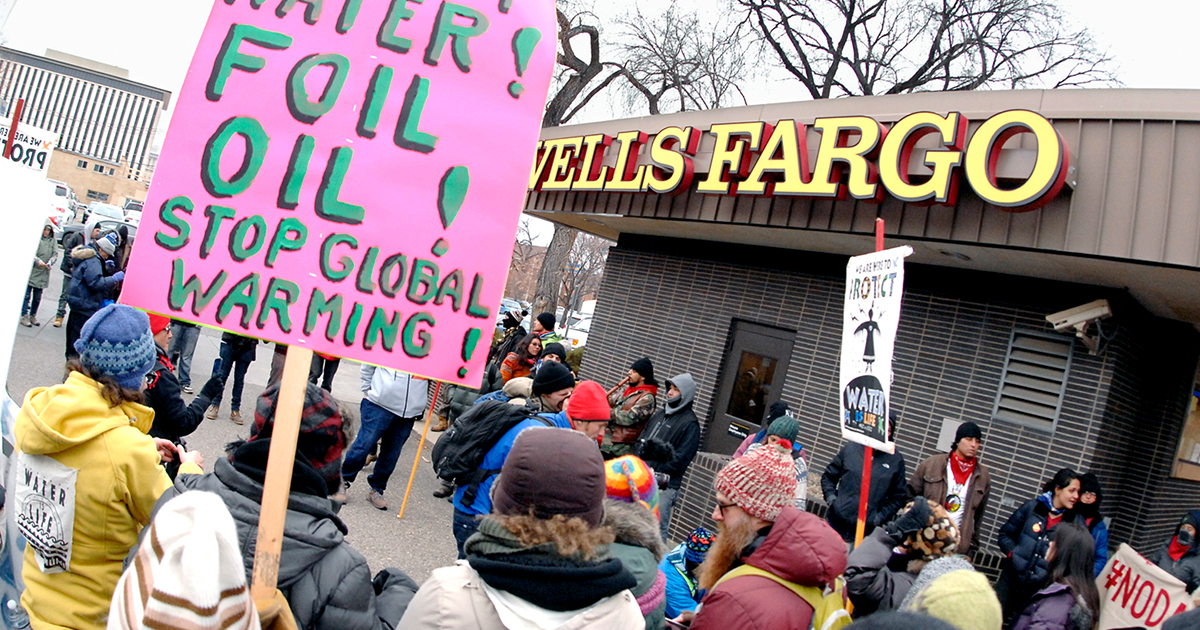A California City Responded to Standing Rock

By:
The city council of Davis, California, moved to cut ties with Wells Fargo in a unanimous vote on Tuesday, the latest development in a nationwide campaign to get cities to divest from banks funding the Dakota Access Pipeline.
 AP/Mike McCleary - apimages.com
AP/Mike McCleary - apimages.com
The city's account with Wells Margo holds an average cash balance of $1 million, and Wells Fargo provides reporting services for a $30 million investment portfolio, Davis financial services manager Pamela Day told the Sacramento Bee. The city fully transferred handling of checking and credit card processing services pertaining to utilities, water revenue, and other services to Wells Fargo in 2011.
Davis city councilmembers voted to find a new bank or credit union to handle finances.
"On Tuesday night we voted unanimously to not send a request for proposals (RFP) for banking services to Wells Fargo," Davis Mayor Robb Davis told ATTN via email. "We are in the process of seeking out a new vendor. Our decision coincides with a broader examination of the social screens we will use to assess all City investments. We have started this conversation and will continue it in two weeks."
For now, the city is still using Wells Fargo, but the mayor is suggesting the use of smaller firms to handle elements of the city's finances currently serviced by the bank. The council is also seeking proposals from local banks, the meeting's agenda says.
"Our decision to divest is based both on Wells Fargo's decision to invest in the DAPL, but also because they have engaged in business practices that we find are inconsistent with our City's values," Mayor Davis said.
Davis residents who attended the meeting spoke out about the bank's involvement in the controversial pipeline. They encouraged the city to select a local bank with an environmentally and socially conscious ethos — a suggestion also proposed by some councilmembers.
"We're taking Davis' $124 million and will work with a financial institution — likely community bank or credit union — that aligns with our community's values," councilmember Lucas Frerichs told ATTN: via email. "Aside from Wells Fargo's well-documented and long record of shameful, and sometimes illegal business practices, fundamentally, I believe we should invest our money locally, which will help continue to grow our local economy."
Last week in Seattle, the city's Affordable Housing, Neighborhoods and Finance Committee voted to forward a similar Wells Fargo divestment plan to the city council, which approved it on Tuesday.
The Davis vote also came the same day the the U.S. Army Corps granted an easement allowing the final stages of work on the pipeline to be completed.
In a statement issued last Tuesday, the Standing Rock Sioux Tribe argued the Corps was illegally circumventing a part of the process required to complete the pipeline by declining to produce an environmental impact statement. The tribe and its allies say the pipeline poses a threat to their water and sacred land.
